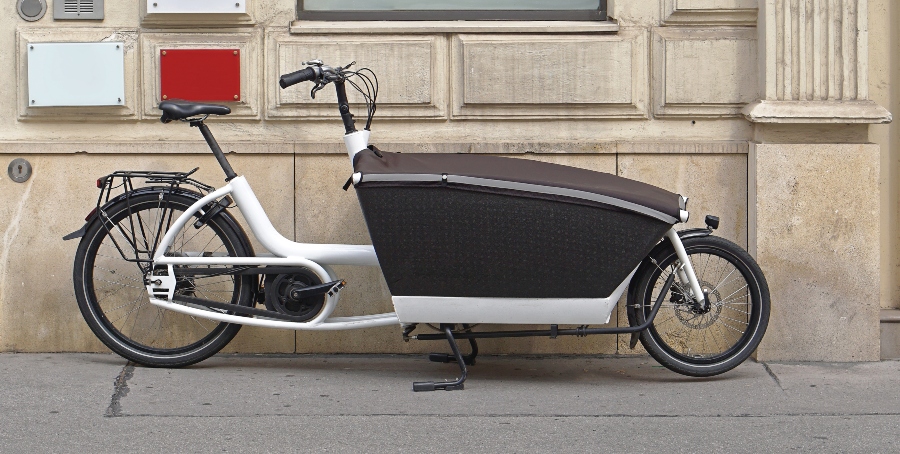Car driver behaviour key to e-cargo bike success

Vast improvements in cycling infrastructure and driver behaviour are needed if electric cargo bikes are to become a common sight on UK roads, according to a new academic study.
The finding comes after researchers evaluated the potential uptake of e-cargo bikes for businesses and small-scale freight transport.
The electric bikes with storage capacity, which cost between £2000 to £7000, have the potential to be a low-carbon alternative to cars and vans in towns and cities.
Researchers from Glasgow Caledonian University and the University of Salford spoke to early adopters, community groups, universities, hospitals and businesses in Greater Manchester about using bikes instead of vans for short distances.
Dr Nick Davies, lecturer in Tourism and Events at Glasgow Caledonian and one of the authors, said: "The novelty and unfamiliarity of these niche vehicles, combined with a road environment that does not easily accommodate their size, can lead to riders feeling unwelcome on the road and result in tension between road users.
"Improvements in cycling infrastructure and driving practices would enable e-cargo bikes to better reach their potential."
The research team found that, in the main, it was only experienced road cyclists who would consider using an e-cargo bike.
Dr Davies added: "Confidence to cycle in traffic is a clear determinant that enables e-cargo bike use, as in reality, e-cargo bikes are more likely to be part of the general traffic.
"The barrier of perceived danger from road traffic when cycling is not specific to e-cargo bikes, but our discussions indicate that this barrier is heightened by the size and unfamiliarity of e-cargo bikes.
"Even though there is a constant policy discussion on introducing better provision for cycling and other more sustainable travel, support from decision-makers in terms of technology, infrastructure and practices for e-cargo bikes is needed to mainstream these as viable alternatives in cities."
The study, published in the latest edition of the academic journal Energy Research & Social Science, was co-authored with Dr Graeme Sherriff and Dr Luke Blazejewski, of the University of Salford.
